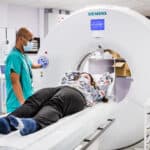Improving the lives and outcomes of those affected by liver cancer



Just diagnosed with liver cancer?
If you have just been diagnosed, you may have a lot of questions about what will happen next. We’re here to help and support you.
Get support

Living with liver cancer
Get information, advice and support that can help you with your treatment.
Information and advice

Support us
Your support ensures that we can carry out our vital work to support and improve lives for people and their families across the UK.
Get involved
Part of the British Liver Trust, Liver Cancer UK is dedicated to saving and improving the lives of people affected by liver cancer by raising awareness, providing support and influencing change.

Latest news

Liver cancer death rate surges despite overall decline in UK cancer deaths
March 18, 2024

New data shows how liver cancer hits vulnerable groups hardest
February 4, 2024

Partnership aims to reduce inequalities in liver cancer diagnosis and treatment
November 3, 2023
Real stories




Hear stories from other people who are adjusting to life with liver cancer.
Donate to support people with liver cancer
Your help will make a real difference to people and their families

